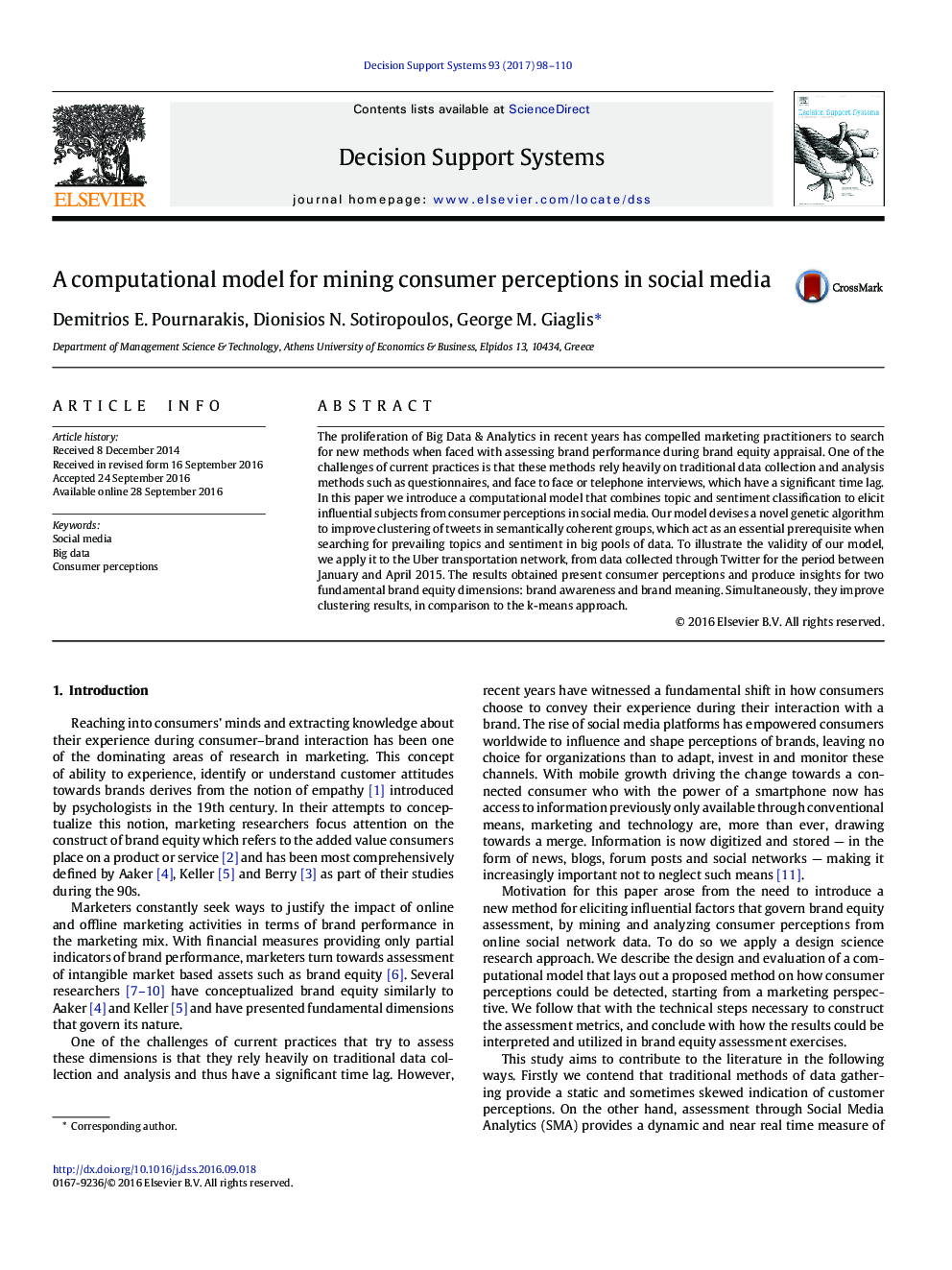| Article ID | Journal | Published Year | Pages | File Type |
|---|---|---|---|---|
| 4972529 | Decision Support Systems | 2017 | 13 Pages |
â¢We introduce a computational model that elicits influential subjects from consumer perceptions in social media.â¢We devise a novel Genetic Algorithm to improve clustering of data in semantically coherent groups.â¢Our model produces insights for two fundamental brand equity dimensions: brand awareness and brand meaning.â¢We empirically apply the model to guide the analysis of over 280.000 tweets related to the Uber transportation network.â¢Our experimental results reveal negative and positive consumer perceptions for specific subjects related to Uber.
The proliferation of Big Data & Analytics in recent years has compelled marketing practitioners to search for new methods when faced with assessing brand performance during brand equity appraisal. One of the challenges of current practices is that these methods rely heavily on traditional data collection and analysis methods such as questionnaires, and face to face or telephone interviews, which have a significant time lag. In this paper we introduce a computational model that combines topic and sentiment classification to elicit influential subjects from consumer perceptions in social media. Our model devises a novel genetic algorithm to improve clustering of tweets in semantically coherent groups, which act as an essential prerequisite when searching for prevailing topics and sentiment in big pools of data. To illustrate the validity of our model, we apply it to the Uber transportation network, from data collected through Twitter for the period between January and April 2015. The results obtained present consumer perceptions and produce insights for two fundamental brand equity dimensions: brand awareness and brand meaning. Simultaneously, they improve clustering results, in comparison to the k-means approach.
